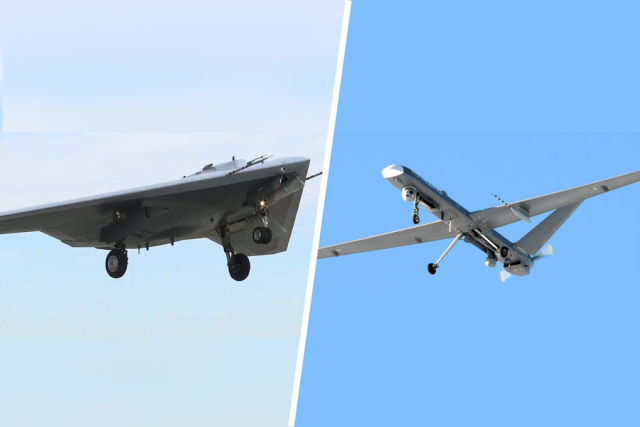It is expected that by 2035 the University, together with the Agency for the Development of Professional Skills, will develop a list of professions for unmanned aviationMOSCOW, February 23.
/tass/. The field of unmanned aircraft systems (UAS), which in the near future will require the training of tens of thousands of specialists annually, can become a high-tech area where methods of rapid and mass training of personnel will be practiced, including by attracting schoolchildren to the inventive environment. This opinion was expressed to TASS on Thursday by Vasily Tretyakov, advisor to the rector of the University 2035.
According to the instructions of the President of the Russian Federation, a strategy for the development of unmanned aviation and a new national project are being prepared for approval in the country. The documents will cover not only the areas of production and certification of equipment, but also the field of personnel training. It is assumed that by 2035 the University, together with the Agency for the Development of Professional Skills, will develop and approve a list of professions for unmanned aviation, as well as establish qualification requirements and conduct an independent assessment of the qualifications of specialists.
"A breakthrough in such a high-tech field as the market of unmanned aircraft systems, where a large-scale increase in the introduction of technology into the real sector of the economy is expected in the coming years, requires the training of tens of thousands of specialists - massively and quickly. This area can act as a platform for working out methods of accelerated training. Among such tools, there may be new formats for involving Russians in the technological environment from childhood, for example, by expanding technical capabilities for the implementation of school projects to develop new models of UAS," Tretyakov said.
Director General of the Agency for the Development of Professional Skills Robert Urazov, in turn, noted that accelerated training of specialists for high-tech areas requires a reduction in the time needed to adapt training programs to market requirements and increase the availability of education for representatives of all age categories.
"Next year, the number of unmanned aerial vehicles used in agriculture alone may increase by 25 times. At the same time, today's training system will be able to provide the number of specialists necessary for the operation of these systems only in three years. And in some areas, for example, in terms of the safety of the operation of drones or the training of aviation lawyers, there is no training at all today. Thus, there is a need for a flexible system that could work with sharp increases in the volume of the training order," Urazov concluded.
Instructions of the President
In December, Russian President Vladimir Putin approved a list of instructions on the development of unmanned aircraft systems, according to which a strategy for the development of unmanned aviation until 2030 and for the future until 2035 will be approved in Russia by the middle of the year. The document will provide for measures to develop serial production of equipment and its components, infrastructure for the operation of such systems, measures to support manufacturers, benefits to stimulate demand for UAS services and tasks for training personnel for the industry.
The Head of the Russian state also ordered the creation of conditions for the development of the drone market, including by allocating frequency bands to provide a single space for management and control. Scientific and production centers of UAS competence and testing accredited by the Federal Air Transport Agency should be established in the country, a system of certification and licensing in this area should be formed, and continuous training of personnel should be provided.
In mid-February, the government established a commission for the development of aviation drones, which will coordinate the work of departments and interact with the industry community on the development and implementation of the main directions of state policy in this area. On February 20, Russian Prime Minister Mikhail Mishustin approved the composition of the government commission, which was headed by First Deputy Prime Minister Andrei Belousov. Denis Manturov, Deputy Prime Minister and Head of the Ministry of Industry and Trade, was appointed his deputy.

